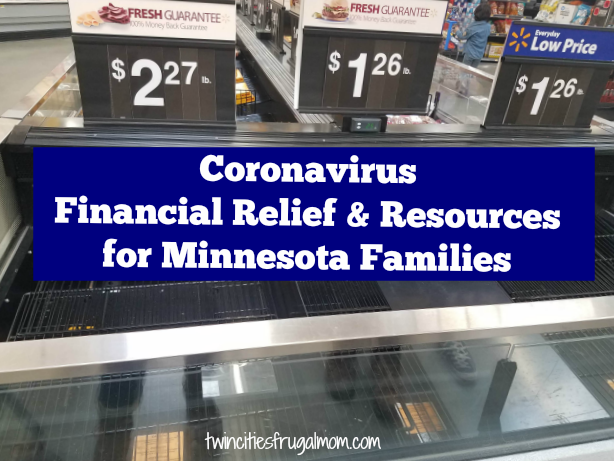
The coronavirus epidemic is not only impacting everyone’s health but also affecting everyone’s wallets as well. Many businesses are shutting their doors, leaving people laid off without any future income. It doesn’t appear to be ending anytime soon. What can you do to protect yourself financially during this difficult time? Here are money-saving tips and ways to earn extra cash during this pandemic.
Set Up An Emergency Budget
Numerous people live paycheck to paycheck and are on the brink of getting laid off because of the pandemic. They most likely won’t have an emergency fund to fall back on if things get worse for them. If you’re in this scenario, you may want to consider setting up an emergency budget. It’s important to have a plan in place early in case you lose income.
An emergency budget concentrates on spending only on absolute essentials. The goal is to free up 20% or more of your take-home pay to set aside for savings. You should stay on this budget until you have at least three months of your net income saved. So, make a list of everything you currently spend money on and start considering items that can be cut.
Cut Expenses
One of the best money-saving tips is to figure out what you can cut out of your budget. Take the money you save and set it aside in savings. Get rid of any unnecessary subscriptions and see if you can downgrade your plan for your phone, Internet, and cable. Cancel your gym membership and utilize free streaming workouts available online. Only stock up on items you reasonably need to survive on for two weeks to a month.
You can save money by making many household supplies at home rather than buying them in the stores. About 42% of adult women prefer natural beauty products over synthetic ones. There are various online resources that can show you how to make your own makeup, shampoo, conditioner, and shaving cream. Do some research online to see what things you can make for yourself instead of having to spend extra cash that you may desperately need in the near future.
Earn From Home
You can find numerous freelance gigs online to earn extra money while you’re quarantined. Internet technology jobs are expected to grow by at least 12% over the next few years. You can earn money from home through writing, making and selling crafts, or starting your own online businesses. Check with your employer to see if they have remote work options. You can also earn gift cards and pocket money by filling out surveys, surfing the web, or playing games on your phone.
During this pandemic, why not brush up on your skills to help you earn more money once things are under control? There are various online courses and certifications you can take, and some of them are free. It can help you alleviate your fears knowing that you have alternative ways of earning money if you should happen to get laid off.
Negotiate Payments
Another one of the best money-saving tips during this pandemic is to negotiate as many payments as you can. For the 17% of Americans who live in rented apartments, talk to your landlord about options with rent if you should get behind. In many states, evictions are being put on hold until this crisis is over. Reach out to your utility providers, mortgage lenders, and credit card companies to make provisions. They are also putting measures in place to postpone or lower payments and eliminate late fees for those affected by the pandemic. (There is more information about this in my Coronavirus Resource Guide.)
Investigate Sick Pay
If you’re still employed, now would be a great time to investigate what the sick pay policy is with your employer. Speak with your human resources department to find out what the rules and regulations may be. It may take a couple of weeks for you to receive your sick pay once it’s approved. You may only be eligible if you’ve been employed for a year or more. It’s worth finding out whether it’s available to you or not before it’s too late or if you’ll have to find alternative solutions.
Protect Your Portfolio
Another one of the best money tips during this pandemic is to protect your portfolio at all costs. Avoid dipping into your 401k or selling stocks. Stay on course with your current investments and shore them up if you can. Review your portfolio for diversification and make any adjustments based on a long term strategy. If you don’t have an emergency fund in place, build up your emergency fund instead of making additional contributions. Consult with a financial planner to discuss your options.
Don’t know how to start or what to expect from a financial planner? Caleb Turbett from Northwestern Mutual is one I recommend here in the Twin Cities, and he put together this guide to help those unfamiliar with the process:
Shop Smart
When it comes to money-saving tips, shopping smart during a pandemic is crucial. Take inventory of what you already have in your pantry and refrigerator and try to build meals around those ingredients. Make a list of essential ingredients you must have and stick to it while you’re at the grocery store. You may want to think of alternative backups for those ingredients if they aren’t available. For example, oatmeal can be a backup for cereal and beans can be a substitute for meat.
Focus on non-perishable food items that you can utilize across several meals, such as rice, eggs, and pasta. Frozen and dried fruits can be healthy and affordable snacks. Potatoes, garlic, onions, apples, and broccoli have a long shelf life. Instead of buying paper towels and hand sanitizer, use the hand towels and rags you have at home along with old fashioned soap. Just make sure to wash them on a daily basis.
By following these money-saving tips, you’ll be able to protect yourself financially during this tough pandemic. The important thing to remember is to stay calm and make wise and rational choices. Protect your investments and work to be better prepared for any future crises like this pandemic in the future. It will help you and your family to have peace of mind during your most difficult times.
Use Resources Available
For more information and resources, check out my growing list, Coronavirus Financial Relief and Resources for Minnesota Families.


